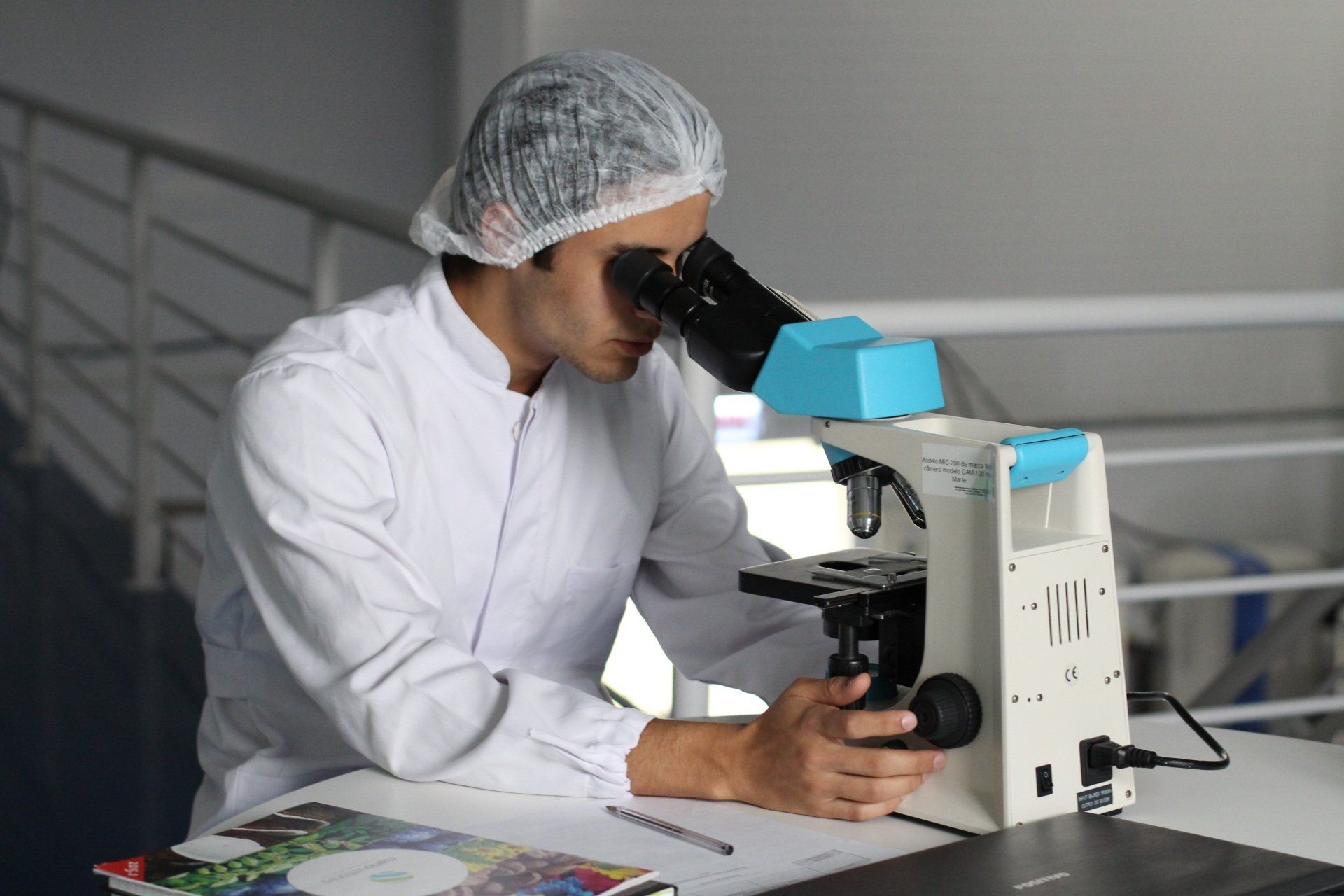Everything You Need To Know About Exogenous Ketones
Can taking ketone supplements benefit your health?
Dr. Latt Mansor has a Ph.D. in Physiology, Anatomy, and Genetics and he has done extensive research in the area of exogenous ketones. In this podcast, he discusses the potential for ketones to improve metabolic function, brain function, heart function, athletic performance, and much more...
He highlights some of what he has discovered during his research with exogenous ketones and working with HVMN, a company that formulates exogenous ketone supplements. Dr.Mansor has done extensive research in the area of exogenous ketones. In this podcast, he discusses the potential that ketones have to improve metabolic function, brain function, heart function, and athletic performance... He highlights some of the interesting details that he has discovered in his research with exogenous ketones and working with HVMN. Connect with Dr. Latt Mansor on social media:
Link to Dr. Latt Mansor's study: Increased oxidative metabolism following hypoxia in the type 2 diabetic heart, despite normal hypoxia signaling and metabolic adaptation.
Learn more about the science of ketones:
HVMN website
CONNECT WITH DR. LATT MANSOR:
Website: https://www.hvmn.com
Subscribe to the HVMN (Dr. Latt’s) Youtube channel for weekly videos: https://go.hvmn.com/subscribe-hvmn
Instagram: @lattmansor, @hvmn
Discover what the science has to say about the potential that ketones have to improve metabolic function, brain function, heart function, and athletic performance.
It has been shown time and time again in studies that ketone bodies are the most energy-efficient fuel and yield more ATP per mole of substrate than pyruvate and increase the free energy released from ATP hydrolysis. Meaning that ketones are a more efficient fuel for the body, especially the brain and heart (1).
Elevation of circulating ketones via high-fat, low-carbohydrate diets have been used for the treatment of drug-refractory epilepsy and for neurodegenerative diseases, such as Parkinson's disease. Many studies have shown that ketones may also be beneficial for muscle and brain in times of stress, such as endurance exercise. Ketones are the preferred fuel for the brain.
Ketones cross the blood brain barrier and can be used by brain cells as an energy source. It's no surprise that many people in ketosis feel a boost of mental clarity and focus (2).
Increased physical performance and cognitive performance was observed in a study titled, Novel ketone diet enhances physical and cognitive performance, and is consistent with the increase in hydraulic efficiency seen in the working rat heart perfused with ketone bodies vs. glucose alone. The conclusions of this study stated:
"Mild ketosis is useful in the treatment of drug-resistant epilepsy. Studies in cells, animals, and patients, suggest that it may be useful in common neurodegenerative diseases, such as Parkinson's and Alzheimer's diseases, as well as in insulin-resistant states, such as trauma, heart failure, and diabetes."
Ketosis markedly improved both physical and cognitive performance in the rat, suggesting that feeding an energy-efficient ketone diet could be used to treat human metabolic disorders (3).
Mild ketosis that results from the conversion of free fatty acids to ketone bodies in the liver is a physiologic response to prolonged fasting or a ketogenic diet (also known as a fasting mimicking diet) in humans (4). Elevated blood ketone bodies replace glucose as the major energy substrate for the brain (5). Therapeutically, elevation of circulating ketone concentrations by feeding high-fat, low-carbohydrate diets has been used for more than a century for treatment of drug-refractory epilepsy (6) and, more recently, for neurodegenerative diseases, such as Parkinson's disease (7). The usefulness of these high-fat diets, however, is limited by poor patient tolerance and elevation of blood lipids, which offset many of the benefits of ketone metabolism (8).
Epidemiological studies suggest that insulin resistance accelerates progression of age-based cognitive impairment, which neuroimaging has linked to brain glucose hypometabolism. As cellular inputs, ketones increase Gibbs free energy change for ATP by 27% compared to glucose (9).
The ingestion of exogenous ketones alters the metabolic response to exercise and may improve exercise performance (10). This is why many athletes are now supplementing with exogenous ketones to enhance physical performance. Ketogenic diets and orally administered exogenous ketone supplements are strategies to increase serum ketone bodies serving as an alternative energy fuel for high energy demanding tissues, such as the brain, muscles, and the heart (11). The benefits of ketones have been seen not only on the brain, muscles and heart, the ketone bodies acetoacetate (AcAc) and β-hydroxybutyrate (βHB) have been proven to have beneficial effects on multiple organs.
By serving as an alternative substrate for energy, and by modulating inflammation, oxidative stress, catabolic processes, and gene expression, ketones have far reaching benefits on multiple organ systems (12). Growing evidence supports an adaptive role for ketone metabolism in heart failure to promote normal cardiac function (13).
Metabolic dysfunction is a ubiquitous underlying feature of many neurological conditions including acute traumatic brain injuries and chronic neurodegenerative conditions. A central problem in neurological patients, in particular those with traumatic brain injuries, is an impairment in the utilization of glucose, which is the predominant metabolic substrate in a normally functioning brain ((14). Now they is hope for people with traumatic brain injuries if the ketogenic diet and perhaps supplemental (exogenous ketones) are used.
STUDIES:
- Intermittent Running and Cognitive Performance after Ketone Ester Ingestion - https:// .ncbi.nlm.nih.gov/29944604/
- Novel Ketone Diet Enhances Physical and Cognitive Performance -https://pubmed.ncbi.nlm.nih.gov/27528626/
- https://faseb.onlinelibrary.wiley.com/doi/10.1096/fj.201600773R
- 7Cahill, G. F., Jr. (1970) Starvation in man. N. Engl. J. Med. 282, 668- 675
- Cahill, G., and Aoki, T. (1980) Alternate fuel utilization in brain. In Cerebral Metabolism and Neural Function (Passonneau, J., Hawkins, R., Lust, W., and Welsh, F., eds.), pp. 234–242, William & Wilkins, Baltimore
- Swink, T. D., Vining, E. P., and Freeman, J. M. (1997) The ketogenic diet: 1997. Adv. Pediatr. 44, 297- 329
- Vanitallie, T. B., Nonas, C., Di Rocco, A., Boyar, K., Hyams, K., and Heymsfield, S. B. (2005) Treatment of Parkinson disease with diet-induced hyperketonemia: a feasibility study. Neurology 64, 728- 730
- Kwiterovich, P.O., Jr., Vining, E.P.G., Pyzik, P., Skolasky, R., Jr., and Freeman, J. M. (2003) Effect of a high-fat ketogenic diet on plasma levels of lipids, lipoproteins, and apolipoproteins in children. JAMA 290, 912- 920
- https://pubmed.ncbi.nlm.nih.gov/32127481/
- https://pubmed.ncbi.nlm.nih.gov/29944604/
- https://pubmed.ncbi.nlm.nih.gov/36458166/
- https://pubmed.ncbi.nlm.nih.gov/36214993/
- https://pubmed.ncbi.nlm.nih.gov/36996176/
- https://www.frontiersin.org/articles/10.3389/fnhum.2022.846183/full
OTHER RESOURCES:
- https://pubmed.ncbi.nlm.nih.gov/36996176/
- https://pubmed.ncbi.nlm.nih.gov/34836344/
- https://pubmed.ncbi.nlm.nih.gov/34753480/
- https://pubmed.ncbi.nlm.nih.gov/36834515/
- https://pubmed.ncbi.nlm.nih.gov/36799478/
- https://physoc.onlinelibrary.wiley.com/doi/10.1113/JP284270
- https://pubmed.ncbi.nlm.nih.gov/33574765/
Start Producing Ketones In 5 Days

Contact Us
Connect with me on social media...
Linkedin: www.linkedin.com/in/mary-beauchamp-rn
FB Page: https://www.facebook.com/ketogenicdietcoach
YouTube Channel: http://www.youtube.com/c/MaryBeauchampRN
Instagram: https://www.instagram.com/ketogenicdietcoach/
Twitter:
https://twitter.com/ketodietcoach
Mary Beauchamp
Best Selling Author
Registered Nurse
Ketogenic Diet Specialist
GAPS™Certified Practitioner
(Gut and Psychology Syndrome)
Mary Beauchamp’s deepest intention is to set people free. Her mission is to make people aware and conscious so that with that awareness, they can begin to heal and live deeply meaningful, integrated and empowered lives.
Drawing from her experiences growing up on a farm, raising her four children and traveling the world, her work provides a road map for health transformation through unlocking the body’s innate intelligence to heal and thrive.
Mary works with a team of Naturopathic doctors. She offers coaching programs, and retreats. You can learn more about her work by visiting her website, www.ketogenicdietcoach.com. Mary is passionate about re-educating people about nutrition. She invites you to experience your body as a master communication system and facilitates this sacred encounter within.













